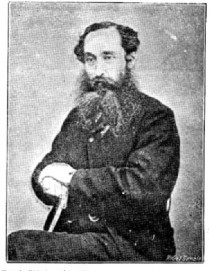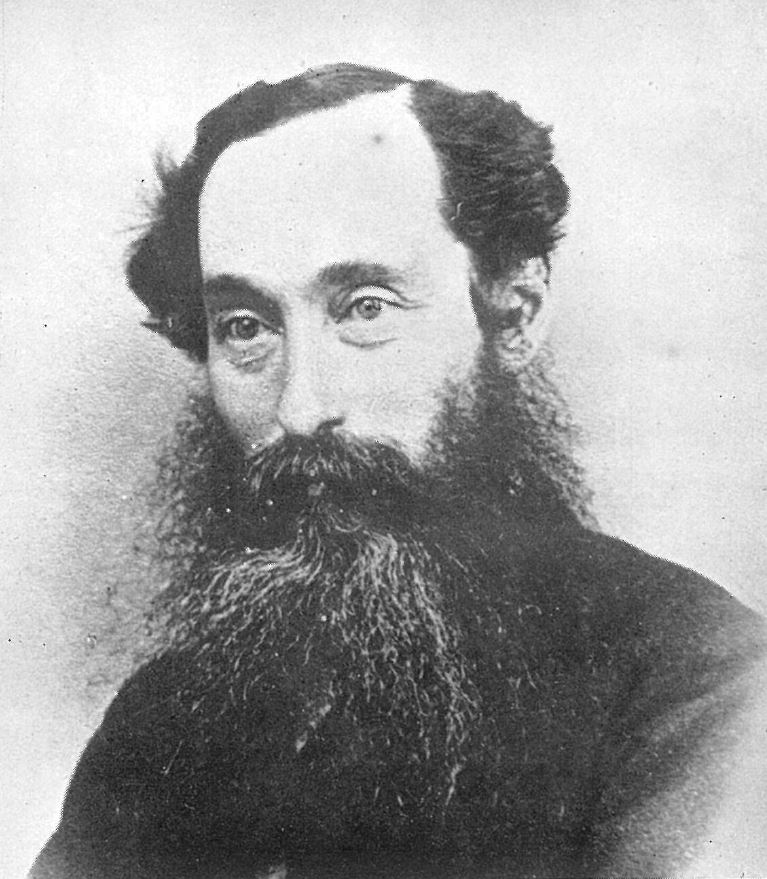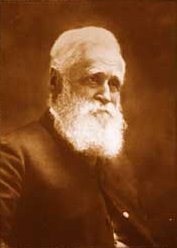|
Collingwood (New Zealand Electorate)
Collingwood was a parliamentary electorate in the Tasman region of New Zealand from 1861 to 1881. Location The electorate was centred on the towns of Collingwood and Tākaka in the South Island. History Arthur Shuckburgh Collins won the 18 March 1868 by-election, was confirmed at the 1871 general election, and resigned on 8 October 1873. Members The electorate was represented by three Members of Parliament A member of parliament (MP) is the representative in parliament of the people who live in their electoral district. In many countries with bicameral parliaments, this term refers only to members of the lower house since upper house members of ...: Key Election Results 1868 by-election References {{Historic electorates of New Zealand , state=collapsed Historical electorates of New Zealand Politics of the Tasman District 1860 establishments in New Zealand 1881 disestablishments in New Zealand ... [...More Info...] [...Related Items...] OR: [Wikipedia] [Google] [Baidu] |
New Zealand Electorates
An electorate or electoral district ( mi, rohe pōti) is a geographical constituency used for electing a member () to the New Zealand Parliament. The size of electorates is determined such that all electorates have approximately the same population. Before 1996, all MPs were directly chosen for office by the voters of an electorate. In New Zealand's electoral system, 72 of the usually 120 seats in Parliament are filled by electorate members, with the remainder being filled from party lists in order to achieve proportional representation among parties. The 72 electorates are made up from 65 general and seven Māori electorates. The number of electorates increases periodically in line with national population growth; the number was increased from 71 to 72 starting at the 2020 general election. Terminology The Electoral Act 1993 refers to electorates as "electoral districts". Electorates are informally referred to as "seats", but technically the term '' seat'' refers to an electe ... [...More Info...] [...Related Items...] OR: [Wikipedia] [Google] [Baidu] |
Andrew Richmond
Andrew James Richmond (1832 – 15 November 1880) was a 19th-century Member of Parliament in Nelson, New Zealand. He was the son of Major Mathew Richmond, Member of the Legislative Council (1853–1887). In 1856, he married Anna Selina Richmond (née Blundell) at Nelson, oldest daughter of Captain Francis H. Blundell. They were to have one son and three daughters. As a public servant he was the second Clerk of the Executive Council. He then represented the Collingwood electorate from 1861 to 1868, when he resigned. He then represented the Suburbs of Nelson electorate from to 1880, when he died. His death on 15 November 1880 at age 48 was sudden and was attributed to heart disease. He died while at home on his farm ''Richmond Brook'' at Awatere, Marlborough Marlborough may refer to: Places United Kingdom * Marlborough, Wiltshire, England ** Marlborough College, public school * Marlborough School, Woodstock in Oxfordshire, England * The Marlborough Science Acad ... [...More Info...] [...Related Items...] OR: [Wikipedia] [Google] [Baidu] |
Politics Of The Tasman District
Politics (from , ) is the set of activities that are associated with making decisions in groups, or other forms of power relations among individuals, such as the distribution of resources or status. The branch of social science that studies politics and government is referred to as political science. It may be used positively in the context of a "political solution" which is compromising and nonviolent, or descriptively as "the art or science of government", but also often carries a negative connotation.. The concept has been defined in various ways, and different approaches have fundamentally differing views on whether it should be used extensively or limitedly, empirically or normatively, and on whether conflict or co-operation is more essential to it. A variety of methods are deployed in politics, which include promoting one's own political views among people, negotiation with other political subjects, making laws, and exercising internal and external force, including w ... [...More Info...] [...Related Items...] OR: [Wikipedia] [Google] [Baidu] |
Historical Electorates Of New Zealand
History (derived ) is the systematic study and the documentation of the human activity. The time period of event before the invention of writing systems is considered prehistory. "History" is an umbrella term comprising past events as well as the memory, discovery, collection, organization, presentation, and interpretation of these events. Historians seek knowledge of the past using historical sources such as written documents, oral accounts, art and material artifacts, and ecological markers. History is not complete and still has debatable mysteries. History is also an academic discipline which uses narrative to describe, examine, question, and analyze past events, and investigate their patterns of cause and effect. Historians often debate which narrative best explains an event, as well as the significance of different causes and effects. Historians also debate the nature of history as an end in itself, as well as its usefulness to give perspective on the problems of the p ... [...More Info...] [...Related Items...] OR: [Wikipedia] [Google] [Baidu] |
1879 New Zealand General Election
The 1879 New Zealand general election was held between 28 August and 15 September 1879 to elect a total of 88 MPs to the 7th session of the New Zealand Parliament. The Māori vote was held on 8 September. A total of 82,271 (66.5%) European voters turned out to vote, plus 14,553 Māori voters. Following the election, John Hall formed a new government. Background Formal political parties had not been established yet; this only happened after the 1890 election. The same 73 electorates were used as for the last election, which was held in 1875–76. In October 1875, Parliament passed the Representation Act 1875, which resolved to increase the size of Parliament to 88 representatives across the 73 electorates. Two of the electorates were represented by three members each ( and Dunedin. A further eleven electorates were represented by two members each (Auckland West, , Grey Valley, , , City of Nelson, , , , Wanganui and City of Wellington). The remaining 60 electorates were repre ... [...More Info...] [...Related Items...] OR: [Wikipedia] [Google] [Baidu] |
1875–1876 New Zealand General Election
The 1875–1876 New Zealand general election was held between 20 December 1875 and 29 January 1876 to elect a total of 88 MPs in 73 electorates to the 6th session of the New Zealand Parliament. The Māori vote was held on 4 and 15 January 1876. A total of 56,471 voters were registered. Background Political parties had not been established yet; this only happened after the 1890 election. The previous parliament had 78 representatives from 72 electorates. In October 1875, Parliament passed the Representation Act 1875, and resolved to increase the size of Parliament to 88 representatives through the following changes: * one additional member for City of Dunedin (from two to three) * the single member electorates of Christchurch East and Christchurch West to amalgamate and form the City of Christchurch electorate with three members * one additional member for Timaru ( was formed as a new electorate) * one additional member for Waitaki (from one to two) * one additional member ... [...More Info...] [...Related Items...] OR: [Wikipedia] [Google] [Baidu] |
William Gibbs (New Zealand Politician)
William Gibbs ( – 7 November 1896) was a 19th-century Member of Parliament from the Nelson Region of New Zealand. Gibbs migrated to New Zealand in 1851 and purchased a large block of land at Tōtaranui. Much of this land is now incorporated into the Abel Tasman National Park. He completed a large homestead there for his wife and eight children, where they lived until moving to Nelson in 1892 when Gibbs retired. His daughter Hannah Sarah Gibbs married Alexander Mackay at Collingwood in 1863. He narrowly lost (by three votes) the for Collingwood. He represented the Collingwood electorate from to 1881, when he was defeated for Motueka. His son W. B. Gibbs stood in the electorate in the , but came third against Henry Levestam and Jesse Piper. The town of Collingwood was originally called ''Gibbstown'' after Gibbs. Gibbs died aged 76 at his home in Nelson on 7 November 1896, and was buried at Wakapuaka Cemetery Wakapuaka Cemetery is a cemetery located in Brookland ... [...More Info...] [...Related Items...] OR: [Wikipedia] [Google] [Baidu] |
1866 New Zealand General Election
The 1866 New Zealand general election was held between 12 February and 6 April to elect 70 MPs to the fourth term of the New Zealand Parliament. In 1867 four Māori electorates were created, initially as a temporary measure for five years. The first Māori elections for these seats were held in 1868, with universal suffrage for Māori males over 21. The first four Māori members of parliament were Tareha Te Moananui (Eastern Maori), Frederick Nene Russell (Northern Maori) and John Patterson (Southern Maori), who all retired in 1870; and Mete Kīngi Paetahi (Western Maori Western Maori was one of New Zealand's four original parliamentary Māori electorates established in 1868, along with Northern Maori, Eastern Maori and Southern Maori. In 1996, with the introduction of MMP, the Maori electorates were updated, ...) who was defeated in 1871. Results a Moorhouse was elected in both the Mount Herbert and Westland electorates. He chose to represent Westland. Notes Ref ... [...More Info...] [...Related Items...] OR: [Wikipedia] [Google] [Baidu] |
1860–1861 New Zealand General Election
The 1860–1861 New Zealand general election was held between 12 December 1860 and 28 March 1861 to elect 53 MPs to the third session of the New Zealand Parliament The New Zealand Parliament ( mi, Pāremata Aotearoa) is the unicameral legislature of New Zealand, consisting of the King of New Zealand (King-in-Parliament) and the New Zealand House of Representatives. The King is usually represented by hi .... 13,196 electors were registered. 1860 was the year gold miners who held a Miner’s Right continuously for at least three months were able to vote without having to own, lease or rent property. Results Notes References * {{DEFAULTSORT:1860-1861 New Zealand general election ... [...More Info...] [...Related Items...] OR: [Wikipedia] [Google] [Baidu] |
Tasman Region
Tasman District () is a local government district in the northwest of the South Island of New Zealand. It borders the Canterbury Region, West Coast Region, Marlborough Region and Nelson City. It is administered by the Tasman District Council, a unitary authority, which sits at Richmond, with community boards serving outlying communities in Motueka and Golden Bay / Mohua. The city of Nelson has its own unitary authority separate from Tasman District, and together they comprise a single region in some contexts, but not for local government functions or resource management (planning) functions. Name Tasman Bay, the largest indentation in the north coast of the South Island, was named after Dutch seafarer, explorer and merchant Abel Tasman. He was the first European to discover New Zealand on 13 December 1642 while on an expedition for the Dutch East India Company. Tasman Bay passed the name on to the adjoining district, which was formed in 1989 largely from the merger of Waimea and ... [...More Info...] [...Related Items...] OR: [Wikipedia] [Google] [Baidu] |
Member Of Parliament
A member of parliament (MP) is the representative in parliament of the people who live in their electoral district. In many countries with bicameral parliaments, this term refers only to members of the lower house since upper house members often have a different title. The terms congressman/congresswoman or deputy are equivalent terms used in other jurisdictions. The term parliamentarian is also sometimes used for members of parliament, but this may also be used to refer to unelected government officials with specific roles in a parliament and other expert advisers on parliamentary procedure such as the Senate Parliamentarian in the United States. The term is also used to the characteristic of performing the duties of a member of a legislature, for example: "The two party leaders often disagreed on issues, but both were excellent parliamentarians and cooperated to get many good things done." Members of parliament typically form parliamentary groups, sometimes called caucuse ... [...More Info...] [...Related Items...] OR: [Wikipedia] [Google] [Baidu] |
1871 New Zealand General Election
The 1871 New Zealand general election was held between 14 January and 23 February to elect 78 MPs across 72 electorates to the fifth session of the New Zealand Parliament. 41,527 electors were registered. Background 1871 was the first general election to include the four Māori electorates, with elections held on 1 and 15 February. The first Māori Members of Parliament had been elected in 1868, but in 1871 three retired and one (Western Maori) was defeated. So in 1871 four new Māori MPs were elected. In 1866 the secret ballot was introduced for general (European) elections. The 1871 general election was the first one at which it was used. The secret ballot not used in Māori electorates until 1938, thus Māori voters continued to inform a polling officer orally of their chosen candidate. The date of election is defined here as the day on which the poll took place, or if there was no contest, the day of nomination. The earliest election day was 14 January 1871. The earliest da ... [...More Info...] [...Related Items...] OR: [Wikipedia] [Google] [Baidu] |

.jpg)





